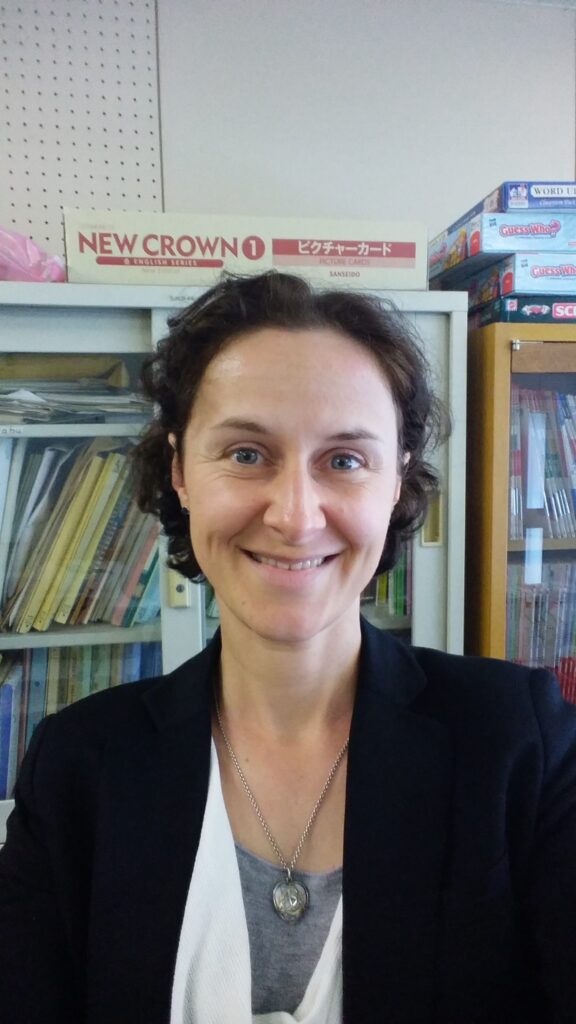Are you a non-native English-speaking teacher (NNEST) who is new to the community of global teachers and concerned about speaking a first language other than English? Or have you been teaching for a while now but have experienced certain obstacles in the workplace or during job-hunting? As a German-born English instructor currently teaching in Japan, I understand this. I would like to highlight some of the advantages of non-native English-speaking teachers, including the unique knowledge and skills that we can bring to the ESL/EFL classroom!
If you’re new to teaching, you’ll want to get initial training and qualification with a TEFL certificate. You can explore our online TEFL courses to get started!
What are my advantages as a non-native English speaker when it comes to teaching skills?
Throughout my years of teaching English as an NNEST, I have discovered so many distinct skills that I can apply to the live or online ESL/EFL classroom. Knowledge of these skills can boost your confidence and reassure you of the advantages you possess as a non-native English speaking teacher.

The author, Johanna
Firsthand experience learning English grammar rules and vocabulary
As an NNEST, you have learned the English language once at school yourself, so you know the grammar rules and vocabulary from a student’s perspective.
Spelling skills
Depending on your mother tongue and your native language system (and therefore how easy it was for you to learn English), your spelling skills might be even better than a native English speaker, because you spell words from knowledge, instead of feeling. This also adds the soft skill “attention to detail” to your resume!
Clear pronunciation
Again, depending on your native language, and that of your students, your pronunciation may be clearer and easier to understand for your students than, let’s say, a thick Australian or American accent. As an NNEST, you are pronouncing words carefully.
Familiarity with the local English education system
If English is a second or even third language for you, you’re familiar with English education in your home country. If you choose to teach English online or in the classroom in your own country, you’re familiar with the content that your students study at school. You can be a great asset to them during test periods or for university preparation courses.
What other unique benefits can I bring to the EFL/ESL classroom as a non-native English speaking teacher?
Apart from being able to teach English by the rules instead of from your gut feeling, you can bring cultural diversity into the online or live ESL/EFL classroom and you can increase your students’ motivation at the same time.
As I mentioned, I’m teaching English in Japan but I was born in Germany. This has given me so many opportunities to offer my students unique knowledge, fun facts, new ideas, global ways of thinking, and an abundance of lesson topics, that even after ten years I am still drawing lesson content from my own culture. I even taught my high school students a few German words, and they loved it! After learning the German words for hello and goodbye, hallo and tschuess, my students now frequently greet me in German. Tschuess probably sounds hilarious to them, and they love saying it.
If this list hasn’t taken your confidence up a huge notch, you can also check out options for professional development, such as the new Bridge Teaching English in English Specialized TEFL/TESOL Certificate course. In this 60-hour course, you can build your classroom vocabulary and gain further confidence in teaching your classes 100% in English.
I’m new to teaching English. What are my chances of getting a teaching job as an NNEST?
It used to be harder for NNESTs to get a job in TEFL/TESOL. About ten years back, I had a hard time finding a teaching job in Japan. However, during the past few years, it has become easier to land an interview and I have become much more confident because of the positive responses I’ve received.
Now some companies even prefer non-native English speakers for the distinct skills that they bring to the classroom! The advantages and benefits of non-native or bilingual teachers are more widely recognized and respected in the education industry. For my current job, I was actually chosen because of my unconventional background.
Take a look at ELT marketplaces, which are a great option for non-native English-speaking teachers.
As a non-native English-speaking teacher, you can shine during TEFL job interviews with the many benefits that you can offer other NNESTs. As long as you are aware of those benefits and know how to present them during an interview, your chances can be just as good as a native English-speaking teacher.
All in all, we non-native English speaking teachers have so many benefits and advantages that we can bring into TEFL/TESOL and into each (online) classroom. The most challenging part is to first realize them as advantages and secondly to confidently use them as skilled members of the global community of English teachers.










